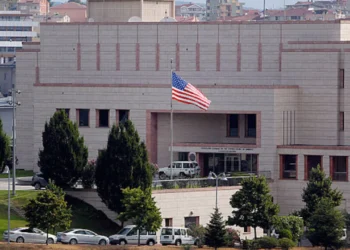The Trump administration’s sudden and forceful declaration of support for Argentina is very much a spectacle. The U.S. Treasury Secretary Scott Bessent’s promise of “large and forceful” action, from currency swaps to direct purchases of Argentine debt, is an unprecedented show of support for a foreign leader under the “America First” banner.
But this isn’t about fostering global stability; it’s a political maneuver aimed at propping up an ideological ally, Javier Milei, just as his radical austerity agenda is on the verge of collapse. The reality is that this bold talk is more about a political lifeline than a genuine economic one, and it exposes the core hypocrisy of Trump’s foreign policy: it’s not about America’s interests, but about a narrow, ideological agenda.
The market turmoil in Argentina, triggered by corruption allegations and growing public frustration with austerity, is a testament to the fact that Milei’s economic reforms, while ambitious, are not a magic bullet. As economist Mark Sobel correctly points out, the peso is “vastly overvalued,” a core structural problem that U.S. intervention alone cannot fix. While a U.S. cash infusion might provide a temporary reprieve, it will not address the deep-seated issues that are causing the currency to bleed value.

The real intent of this move is to buy time for Milei, to push him through the upcoming October midterm elections, and to prevent the democratic process from rejecting his platform. The fact that the U.S. is not imposing any new conditions—and is “very satisfied” with the IMF’s position—further confirms that this is a political bailout. It’s an endorsement of an ideology, not a pragmatic plan to fix a failing economy. This is a risky move that could ultimately prove to be an enormous waste of U.S. taxpayer money if Milei’s government falls apart anyway.
Why It Matters
The current U.S. approach is a reckless gamble that prioritizes political optics over sound economic policy. A truly effective and sustainable solution for Argentina requires more than just a blank check.
A smarter, more sustainable approach would involve a comprehensive strategy that addresses the nation’s fundamental economic imbalances without forcing a single, painful solution. The U.S., as the IMF’s largest shareholder, should push for a more nuanced and flexible approach from the global lender. This would include a plan to gradually devalue the peso in a managed way to avoid a hyperinflationary shock.
While Bessent’s statement that the Exchange Stabilization Fund and currency swap lines are “on the table” signals a powerful willingness to act, this power must be wielded responsibly. Any financial support should be tied to concrete, achievable reforms that stabilize the economy while also protecting the most vulnerable Argentine citizens from the harsh realities of austerity. True support for pro-growth reforms should not come at the expense of political stability and social cohesion.
















